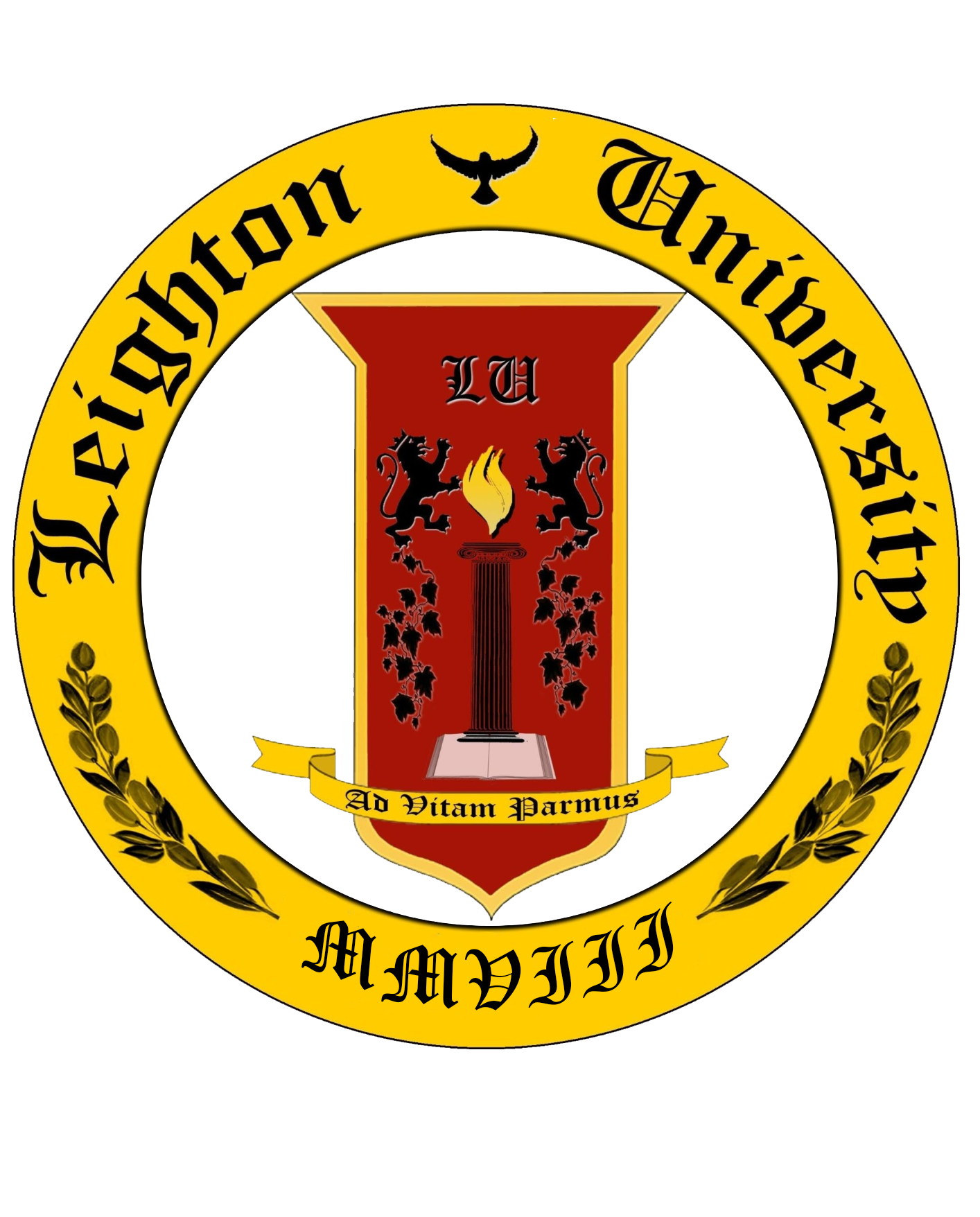Questions? 662-280-5444
RELATED LINKS
About Leighton
Student Records
- Office of the Registrar
- Grade Change
- Pass/Fail Grade Policy
- Academic Forgiveness Policy
- Credit Hour Policy
- Repeated Course Policy
- Repeated Course Fee
- Repeated Course
- Procedure for Securing Student Records
- Add/Swap Courses
Financial Matters
- Student Financial Account
- Delinquent Tuition Account
- Refund Policy
- Drop for Non-Payment
- Tuition/Fees & Billing
- Payment Plans
- Payments by Guarantor
- Cancellation Policy
- Refund Policy
- Refund Payments
- FERPA
Student Development Services
- Disability Services Accommodation
- Disability Services
- Advisement
- Academic Advisors
- Non-Degree Students
- Transient Students
- Transfer Credit
- Transfer Students
- Student Honor Code
- Section 504 Compliance
- Section 504 Coordinator
- Complaint Procedures
- Investigation Procedures
- Review of Academic Records
- Withdrawal from a Course
- Academic Withdrawal
Human Resource
Academic Division
- Course Numbering
- Credit/No-Credit Courses
- Incomplete Grade
- Deans List
- General Education Program
- Academic Standards
- Academic Integrity
- Violation of Academic Integrity
Technology & Communications
General Education
Courses in the General Education program contain the collective knowledge and skills you need to be useful as a person, an employee, a consumer, and a citizen. These courses provide the breadth, perspective, and rigor that allow Leighton University graduates to claim to be “educated people.” Additionally, General Education courses introduce great ideas and controversies in human thought and experience. Most Americans change their careers three times during their lifetime. A solid general education provides a strong foundation for life-long learning that makes career-change goals attainable.
As a Foundational Program
Satisfies a majority of the core degree requirements for your bachelor’s degree at Leighton University or before you go to a major university.
Leighton University has defined the general education core competencies that all its graduates from associate degree and bachelors programs should have attained as the following:
Category 1: Purposive Communication – A competent communicator can interact with others using all forms of communication, resulting in understanding and being understood. A Leighton University graduate will demonstrate the ability to understand and interpret complex materials; espouse, develop, organize and present an idea formally and informally; use standard English; use appropriate verbal and non-verbal responses in interpersonal relations and group discussions; use listening skills; and recognize the role of culture in communication.
Category 2: Quantitative Skills – A person who is competent in quantitative skills, possesses knowledge knowledge and competencies necessary to apply the use of logic, numbers, and mathematics to deal effectively with common problems and issues. A quantitatively literate person can use numerical, geometric, and measurement data and concepts, mathematical skills, and principles of mathematical reasoning to draw logical conclusions and to make well-reasoned decisions. A Leighton University graduate will demonstrate the ability to use logical and mathematical logic with the context of various disciplines; interpret and use mathematical formulas; understand mathematical models such as graphs, tables, and schematics and draw inferences from them; use graphical, symbolic, and numerical methods to analyze, organize, and interpret data; estimate and consider answers to mathematical problems to determine reasonableness; and represent accurate information numerically, symbolically, and visually using graphs and charts.
Category 3: Behavioral and Social Understanding – A culturally and socially competent person possesses an awareness, understanding, and appreciation of the inter-connectedness of the social and cultural aspects within and across local, regional, state, national, and global communities. A Leighton University graduate will demonstrate the ability to assess the impact that social institutions have on individuals and culture— past, present, and future; describe their own as well as others’ ethical systems and values within social institutions; recognize the influence that arts and humanities have upon individuals and cultures; appreciate the role of language in social and cultural contexts; and identify the inter-dependence of distinctive worldwide social, economic, geopolitical, and cultural systems.
Category 4: Scientific Reasoning– A person who is competent in scientific reasoning holds to a self-rectifying system of inquiry (the scientific method) and relies on empirical evidence to describe, understand, predict, and control natural phenomena. A Leighton University graduate will demonstrate the ability to generate an empirically evidenced and logical argument; differentiate a scientific argument from a non-scientific argument; reason by deduction, induction, and analogy; distinguish between causal and correlational relationships, and recognize methods of inquiry that lead to scientific knowledge.
Category 5: Humanities and Fine Arts – As a component of the CORE, under the category of Humanities and Fine Arts, students learn to explore issues that are fundamental to the human uniqueness, as these are expressed in the cultural, artistic, and intellectual traditions of the world’s civilizations. Course requirements under Category 5 of the CORE program offer students the opportunity that would orient them to ways to give meaning to the human experience through the study of fine arts, interpretations of history, rituals, and the various belief systems of religion and philosophical thought. After successful completion of the coursework under Category 5, students will have the knowledge and skills to respond more knowledgeably to those humanistic and artistic works and traditions created by people of various societies and times.
Category 6: Technological Literacy– A person who is technologically literate recognizes when information is essential and can locate, evaluate, and use it effectively. A Leighton University graduate will demonstrate the ability to determine the nature and extent of information needed; access desired information effectively and efficiently; judge information and its sources critically and integrate carefully selected information into his or her knowledge base; use information effectively, as an individual or as a member of a group, to realize a specific purpose; and recognition of many of the economic, legal, and social issues around the use of information and access and use information ethically and legally.
